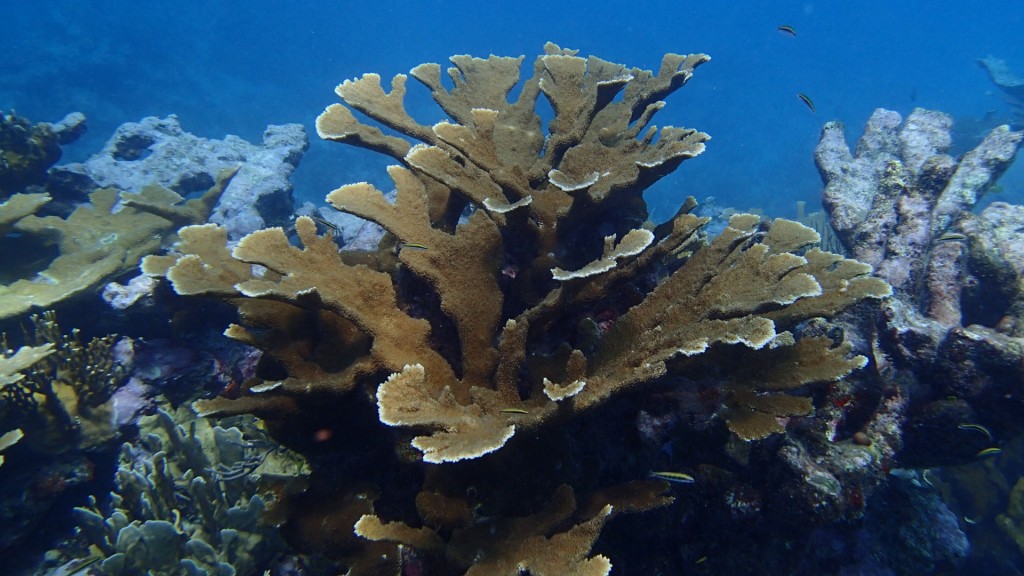
A colony of elk horn coral, Acropora palmata, which is listed as threatened under the U.S. endangered species act. This species once dominated Caribbean reefs but has been virtually wiped out by disease and climate change. (From Akumal, Mexico, in 2014. Photo by John Bruno)
For the world’s coral reefs, the picture keeps getting gloomier. Although it’s widely assumed that both local and global factors are contributing to their decline, new research shows that isolated reefs far from human activities are in fact not healthier than those in more densely populated areas.
The work, led by John Bruno, a UNC professor of biology, marks the first global test of the hypothesis that isolated reefs are suffering from less damage.
“We often mythologize isolated coral reefs as pristine and safe from harm,” said Bruno. “In fact, coral loss on some of our isolated reefs is just as dramatic as coral decline on reefs adjacent to more densely populated islands.”
Bruno and co-author Abel Valdivia (a former UNC-Chapel Hill graduate student, currently a research scientist for the Center for Biological Diversity in Oakland. Calif.), analyzed data from 1,708 reefs around the world from the Bahamas to Australia collected from 1996 to 2006.
The research, reported online in the Nature journal Scientific Reports, shows that local management efforts to mitigate impacts of activities like fishing and tourism cannot alone restore coral reef populations.
One striking example is the massive bleaching of hundreds of kilometers on the northern and central Great Barrier Reef in Australia, Bruno said.
“Our work illustrates the truly far-reaching effects of global warming and the immediate need for drastic and sustained cuts in carbon emissions,” he said.
Watch a video of graduate student Laura Mudge surveying recovering reefs in Mexico.
